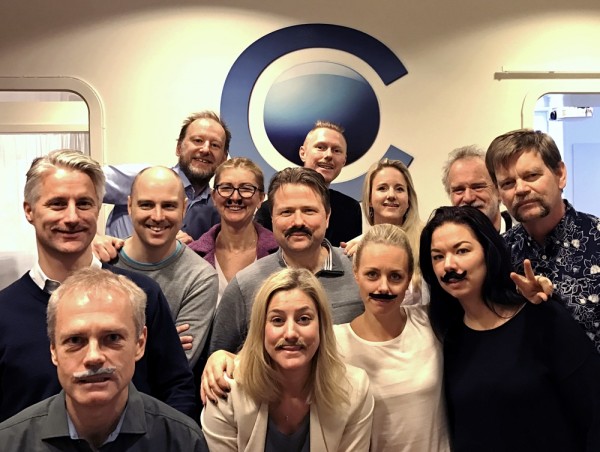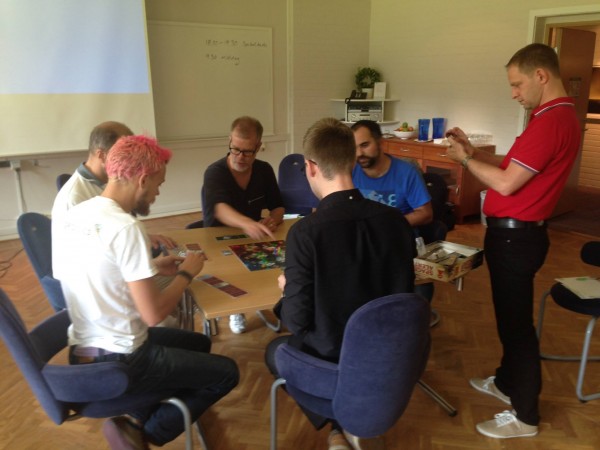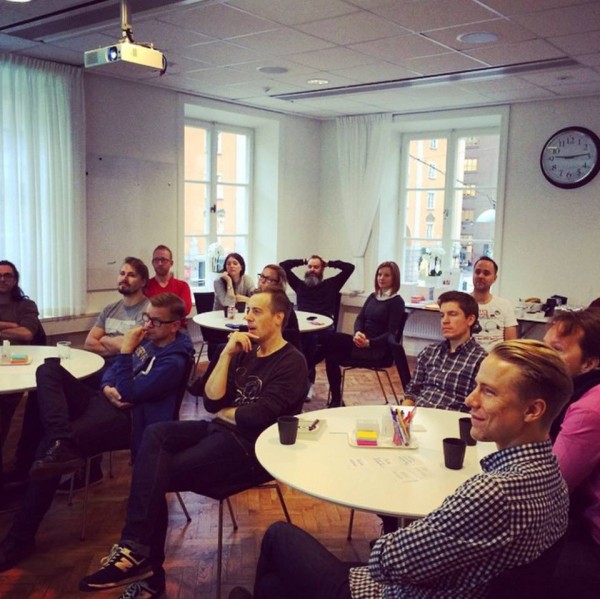Do companies need a strong leader to make it in today’s highly competitive environment? Many would say “yes, definitely”, but the employees of one Swedish software consultancy company would tell them otherwise. They don’t have a CEO. Nobody tells anyone what to do, instead all the 40 employees have meetings and decide together.
Crisp, the software consultancy firm that has become world famous for not having a boss, has in fact gone through a number of organisational structures, including the classic formula of having a single person running things. Hoping to get its employees more involved, it moved on to changing its chief executive officer annually, but ultimately, the 40-strong staff decided there was actually no need for a single leader, so they scrapped the position altogether.
“We said, ‘what if we had nobody as our next CEO – what would that look like?’ And then we went through an exercise and listed down the things that the CEO does,” said Yassal Sundman, a developer at Crisp. He and his colleagues quickly realized that many of the CEO’s responsibilities overlapped with their own, with the few roles that didn’t easily shareable among other employees. SO they decided to give the boss-less experiment a try.

Photo: Crisp
“When we looked at it we had nothing left in the CEO column, and we said, ‘all right, why don’t we try it out?'” Yassal told the BBC.
So how does anything ever get done, and who holds employees responsible if they mess up, right? Well, it turns out that not having a boss, and being involved in decision making has made Crisp’s 40 employees a lot more responsible and motivated. And even if someone does make a bad call at some point, it’s definitely not the end of the world. They get a chance to explain their reasoning and maybe even convince the others that it was the best thing to do at the time.

Photo: Crisp/Facebook
“At least you did the thing that was right in the moment – and then we can have a discussion about it,” Sundman says. “You can explain why it is that you thought this was a good way, and actually you might get everybody else to think the same way.” According to the BBC, the unique Swedish company is apparently set up more like a family – nobody tells anyone what to do, but the unspoken understanding is that “you don’t mess up the house.”
Crisp does hold four-day meetings for the whole staff two or three times a year, when they decide on things that affect everyone, like changing their headquarters, but generally, company employees are encouraged to make their own decisions. They also have a company board, a legal requirement in Sweden, which acts as a last resort, in case something goes horribly wrong.

Photo: Crisp/Facebook
So far, the “no CEO” experiment has gone surprisingly well. Henrik Kniberg, an organisational coach at Crisp, claims that not having to ask the boss to approve project decisions or budgets means that things happen a lot faster and the company can respond to clients quicker. Employees are also a lot happier, as revealed by the regular staff satisfaction surveys, where the average is a solid 4.1 out of 5.
However, Kniberg stresses that not having to ask the CEO’s permission about stuff doesn’t remove employees’ responsibility to consult with their colleagues and explain their decisions.
Crisp hopes that its success will inspire other companies to adopt the “Crisp DNA”, but some CEOs believe that the idea only works in small startups, because it would be too chaotic in large organizations. “Often infinite freedom like that can be pretty disorientating. It doesn’t always feel good, because you no longer know what you’re supposed to do, what’s important and you’re bumping up against other people,” Dropbox founder Drew Houston told BBC.





